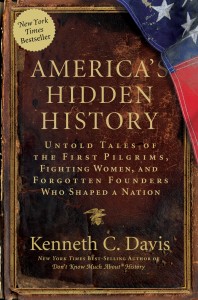This is a day to ponder the power of science and reason against the power of religious authority. On this date, reason lost.
On June 22, 1633, the 70-year-old astronomer Galileo went before the Inquisition in Rome. He wore the white shirt of a penitent. Then he heard sentence passed:
We say, pronounce, sentence, and declare that you, the said Galileo, by reason of the matters adduced in trial, and by you confessed as above, have rendered yourself in the judgment of this Holy Office vehemently suspected of heresy, namely, of having believed and held the doctrine—which is false and contrary to the sacred and divine Scriptures—that the Sun is the center of the world and does not move from east to west and that the Earth moves and is not the center of the world; and that an opinion may be held and defended as probably after it has been declared and defined to be contrary to the Holy Scripture; and that consequently you have incurred all the censures and penalties imposed and promulgated in the sacred canons and other constitutions, general and particular, against such delinquents.
From which we are content that you be absolved, provided that, first, with a sincere heart and unfeigned faith, you abjure, curse, and detest before use the aforesaid errors and heresies and every other error and heresy contrary to the Catholic and Apostolic Roman Church in the form to be prescribed by us for you. And in order that this your grave and pernicious error and transgression may not remain altogether unpunished and that you may be more cautious in the future and an example to others that they may abstain from similar delinquencies, we ordain that the book of the “Dialogues of Galileo Galilei” be prohibited by public edict.
Galileo’s crime, of course, was to have published a book, Dialog on the Two Chief World Systems, in which he argued that the Earth revolved around the Sun and not the other way around. Using the form of a debate between three Italian gentlemen, the book was written in vernacular Italian rather than Latin. It had received initial approval from a Church censor. The book was a popular success, but also attracted the attention of a Vatican now gravely concerned with the challenges posed to its power by the growing Protestant Reformation.
Early in 1633, Galileo was summoned from his sickbed to defend his life’s work. Galileo was told to renounce his heresies in exchange for leniency. Galileo obliged. His book was burned and the sentence read in every university.
According to legend, as Galileo left the Inquisition hall after recanting his views, he supposedly muttered,
E pur se muove. (“Nevertheless, it moves.”)
While living out his sentence under house arrest, Galileo continued to write before going blind in 1638 and finally dying in 1642.
The Catholic Church officially denied Copernican Theory until 1922.
In 1984, a papal commission acknowledged that the Church was wrong about Galileo, but it did not reverse its condemnation of the genius of astronomy until 1992 –350 years after his death. So the Powers That Be do acknowledge their mistakes. Sometimes it just takes a few centuries.
Here is a link to the English site of the Institute and Museum of Science in Florence with significant Galileo resources: http://www.imss.fi.it/
Another resource is the PBS Nova documentary Galileo’s Battle for the Heavens http://www.pbs.org/wgbh/nova/galileo/
You can also read more about Galileo in Don’t Know Much About the Universe.
